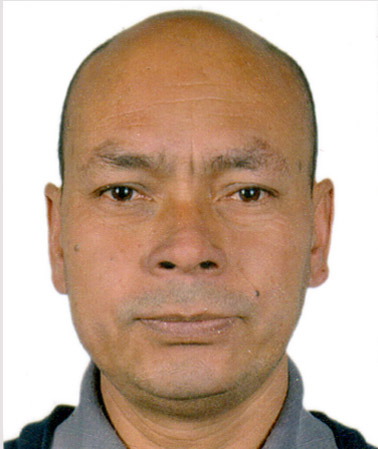Nepal's major political parties, not psychologically prepared yet on how to transform the Nepali society, linger to their power embezzlement-oriented disputes regarding the nature of the nation's governing system. The Nepali Congress (NC), the oldest party in Nepal, has argued that the Westminister-styled parliamentary system has no alternative for Nepal while the former Maoist rebels--the Unified Communist Party of Nepal Maoist (UCPN)-- and the newly emerging Terai-based regional parties have sided for the presidential state system.
The UCPN, as per their party documents, interprets the abolition of the 240 year-old monarchy as the total failure of the existing parliamentary system (however, they have shown their reluctance to reach masses with t his debate). They question the defendants of the old parliamentary state system if it is still valid in the context of the adoption of the interim republican provision with a promise of political and socio-economic transformation that would replace the existing structures.
But the NC argues that the directly elected president could be more dictatorial, threatening the very essence of democracy. Showing this possible reason, the NC stands for the continuity of the existing parliamentary system marked by the executive power of the elected prime minister, accountable to the parliament.
However, the UCPNM and the Madhesis do not agree with the NC viewpoints on this score. Especially, the Maoists, i.e., the UCPNM, debate that there would be no question of transformation and state restructuring if the same troublesome design would be preserved. What is interesting more recently about this is the fact that the Maoists have shown symptoms of their mental fatigue regarding their own earlier stand for the republican state system.
More interesting in this context is the puzzled mentality of the Unified Marxist Leninist (UML), which has not exposed its clear stand on the matter. Its stand so far remains that it would stand somewhere between the Maoists and the NC. Previous records of the UML show that it has a tendency of voting for the party likely to get its proposition passed by majority. However, its previously proposed state system was the direct election of the prime minister, who would rule the country with full executive power.
On the issue of the state system, the Terai-based regional parties--it's difficult to call them political parties in terms of their ideologies, visions, progress and moral integrity (nothing of the mentioned is clear)--have not forwarded their viewpoints so clearly as to why they prefer the presidential state system.
Unfortunately, the major influential parties have clearly lacked interpretative power as to convincing people--still politically not empowered though stronger in partisan prejudices. These parties have trained their cadres to become psychologically extremely prejudiced; as a result, they would always remain quarrelsome for partisan interests in every nook and corner. Amidst such misguided and nonenlightening disputes, its is difficult to guess how they would fulfill people's bigger aspirations shaped up by the 10 year-long armed insurgency and the historical mass uprising of April 2006, when millions of the working class Nepalis had defied and overcome the 19 days of full military curfews.
Following the abolition of the monarchial state system in 2008 through the elected Constituent Assembly, the traditional parties, viz. the NC and the UML, and the former rebels, viz. the Maoists, have renewingly continued their quarrels over what state governing system to adopt for the future Nepal.
It appears that the Civil Society intellectuals need to conduct heavy exercises to sensitize the Nepalis at grassroots level regarding why state restructuring and overall transformation should be the major agenda for transforming the conflicts productively and to establish a more stable peace in the country. Doing so at citizens' level is more important, especially as the former Maoist rebel leadership has unofficially shunned the agenda of state restructuring and political and socio-economic transformation after it has ascended power. But the Civil Society intellectuals, especially those fueled by donated dollars, need to dare to utilized their funds in favor the overall transformation of the Nepali society rather than for preserving the status quo against which the 99 percent Nepalis have voted.
As far as the mentality of the ordinary masses is concerned, neither the presidential state system nor the Westeminister parliamentary state system is a big issue for them, the primary reason being their own lives being jeopardized by the unhindered open rule of smugglers, corrupts and black marketeers that over-rule the country's Executive, Judiciary and the Legislature. The Executive, the Judiciary and the Rule Application apparatuses appear heavily metastasized by the devilish forces in the Nepali society. Several investigative and crime reporters have told this scribe that who they fear most is not the criminal groups themselves but those (in the state apparatuses) who protect and promote the criminal networks as permanent profit-maximizing industries. One can imagine how serious the underlying meaning of this statement may be. If this is to be viewed really seriously, Nepal's state restructuring process will never reach a logical point without restructuring the judiciary and the law enforcement apparatuses, ranging from central to village units.
Had there been no open rule by criminal networks in Nepal, the market prices would not skyrocket ranging from 100 percent to 1,000 percent across the country. Had there been no over-rule by criminal networks in the country, criminal activities would not be institutionalized by the parties themselves. One cannot blame individually on some people for this situation. This is the nature of the Nepali society cultured, nurtured and reconcretized politically, socially and economically over the six decades of slave-minded and feudalized politics under which the Nepalis have been betrayed time and again, with no rescue leadership yet. All are to blame, more or less.
But the change-seeking Nepali society always keeps on hoping for better days. Currently, they are in need of a morally accountable public-spirited political leadership far more than this or that form of rule.





